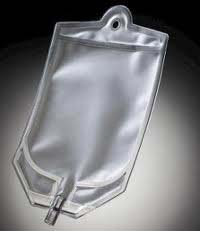Summary
Explore the transformative impact of Manufacturing Execution Systems (MES) on medical device manufacturing:
- Streamlines the development process
- Ensures FDA compliance and quality control
- Optimizes the product life cycle for efficiency
Discover how MES technology advances medical device production, ensuring regulatory compliance and enhancing overall manufacturing efficiency.
Introduction
Imagine what you could do with instant, accurate machine data and process information directly from the machine. Even depth and dimension is within reach with the help of a manufacturing execution system (MES). Medical parts, supply and equipment manufacturers use MES for real-time production monitoring and analysis to improve throughput, boost quality, and reduce scrap. You can achieve more capacity with the same machines and improve overall equipment effectiveness (OEE)—working more efficiently and profitably.
This white paper highlights four ways to boost your performance with the right manufacturing execution system.
Designing and Developing Medical Devices Efficiently
Efficient design and development are critical for creating safe and effective medical devices. Incorporating an MES can revolutionize the medical device development process, ensuring precision and compliance from start to finish.
- Streamlined Workflow: MES systems provide a structured framework, reducing inefficiencies.
- Enhanced Collaboration: Real-time data sharing enhances communication among teams.
- Design Input Management: MES helps manage and track design inputs, ensuring all requirements are met.
- Compliance Assurance: Ensures adherence to regulatory standards throughout the development process.
The Steps
Step 1: Manage Family-of-Parts Tools and Molds
Managing tools and dies can be a real challenge, especially for family molding. It gets easier with an MES designed to handle these complex scenarios. When an MES is designed for scheduling, cost reporting, and monitoring scrap across individual parts within a family, you achieve better control and the greatest possible efficiency.
Manufacturers in the healthcare sector that use family molds should be able to use their MES system to automatically pinpoint and resolve tooling conflicts, efficiently manage color change requirements, produce uneven batches, and identify and scrap individual pieces. With the right MES system, you can plan in a proactive fashion and eliminate unnecessary wait time and inefficiencies.
Step 2: Focus on Process and Quality Control
A quality control focus is crucial to ensure you ship high quality parts to your customers. It’s no longer enough to simply collect real-time production data of your manufacturing operations, you also need to analyze the process conditions of your production, in real time, to prevent bad parts from being produced and shipped to customers.
Make sure the MES you’re evaluating includes comprehensive Statistical Process Control (SPC) features that help you analyze important process conditions, and provides alerts when process conditions are out of tolerance. This way you’ll have full and immediate traceability back to the root cause of your quality issue.
SPC reduces bad parts produced and improves quality by collecting data from samples at various points within your process. Variations in the process that may affect the quality of the end product can be detected and corrected, thus reducing waste as well as the likelihood that problems will be passed on to the customer. It has an emphasis on early detection and prevention of problems.
Step 3: Rely on Real-Time Information
Your system should provide accurate 24/7 real-time manufacturing information of all your plant operations. By gaining access to this information, you will be able to reduce scrap, waste and machine downtime, improve your cycle times, Overall Equipment Effectiveness (OEE), plant productivity, and automatic part qualification. A proper MES system will enable you to become proactive, and help anticipate and solve manufacturing problems before they occur. Identifying resource inefficiencies lets you do more with your existing resources and find new capacity.
Step 4: Eliminate Manual Processes
Collecting production data manually is time consuming and error prone. With no access to real-time data, you might produce bad parts for some time before you realize it. Halting production to find the bad parts and the root cause can result in significant costs.
Real-World Application: Enhancing Medical Device Manufacturing and Development
The intricate journey of medical device development from initial concept to market release is a testament to the industry’s commitment to safety, efficacy, and quality. The adoption of Manufacturing Execution Systems (MES) offers a strategic advantage, streamlining operations and ensuring compliance throughout the medical device product life cycle.
Streamlining the Product Development Process
Incorporating an MES into medical device manufacturing revolutionizes the medical device product development process. It ensures a seamless transition through the stages of the medical device product development life cycle, from the proof of concept and design control to the final manufacturing phase.
This integration enhances efficiency and adheres to the rigorous medical device product life cycle protocols, facilitating a smoother pathway to market readiness.
Ensuring Quality and Compliance
Quality control and regulatory compliance are paramount in the medical device industry, governed by the Food and Drug Administration’s (FDA) quality systems regulations. An MES provides the infrastructure for real-time monitoring and management, which is crucial for navigating the FDA approval process and clinical trials.
Through diligent oversight of design processes and manufacturing procedures, MES systems help in developing FDA-approved medical technologies that meet the highest standards of safety and effectiveness.
Effective Risk Management in Medical Device Development
Managing risks is vital to ensuring the safety and effectiveness of medical devices. An MES facilitates proactive risk management by providing real-time insights and control.
- Early Detection: Identifies potential issues early in the design and development stages.
- Process Monitoring: Continuous monitoring of manufacturing processes reduces risk.
- Compliance Tracking: Ensures compliance with FDA regulations and other standards.
Post Market Surveillance
Post market surveillance is essential for maintaining the safety and effectiveness of medical devices. MES systems enhance this process by providing comprehensive data analysis and reporting.
- Real-Time Data Collection: Continuous collection of performance data ensures up-to-date information.
- Issue Identification: Quickly identifies and addresses any post-market issues.
- Regulatory Reporting: Simplifies the process of reporting to regulatory bodies.
- Continuous Improvement: Provides insights for ongoing improvements and innovation.
Facilitating Manufacturing Excellence
Device manufacturing relies on precise and controlled manufacturing processes. MES systems are instrumental in managing these complexities, ensuring that every product is designed and manufactured with the utmost precision.
They play a crucial role in managing the supply chain, enforcing design control, and upholding the stringent quality systems regulations mandated by the United States Food and Drug Administration. This level of management is essential for the successful production of medical devices that are safe, reliable, and compliant with industry standards.
Advancing Medical Technologies
The integration of MES systems in the medical device production process exemplifies how technology can optimize the product development cycle, from conceptualization to commercialization.
By enhancing production efficiency and ensuring regulatory compliance, MES systems enable medical device companies to deliver innovative, high-quality medical technologies to the market more efficiently. This not only meets the critical healthcare needs of patients but also pushes the boundaries of what is possible in medical science and patient care.
Through meticulous management of manufacturing processes and a steadfast commitment to quality and compliance, MES systems are transforming the landscape of the medical device industry. They enable companies to navigate the complex regulatory environment and deliver life-saving technologies to those in need, marking a significant leap forward in the development and manufacturing of medical devices.
Conclusion
If you’re ready to find more capacity and do more with your existing resources, and anticipate and solve manufacturing problems before they happen, then it’s time to evaluate your manufacturing execution system options. The best MES system for medical parts, supply and equipment manufacturers is one that captures production and process data directly from the machine, provides depth and dimension of information, and delivers accurate, real-time production analysis.
From an Epicor White Paper
About Epicor
Epicor Software Corporation is a global leader delivering business software solutions to the manufacturing, distribution, retail, and service industries. With more than 40 years of experience, Epicor has more than 20,000 customers in over 150 countries. Epicor solutions enable companies to drive increased efficiency and improve profitability.
With a history of innovation, industry expertise, and passion for excellence, Epicor inspires customers to build lasting competitive advantage. Epicor provides the single point of accountability that local, regional, and global businesses demand. For more information, visit www.epicor.com.


